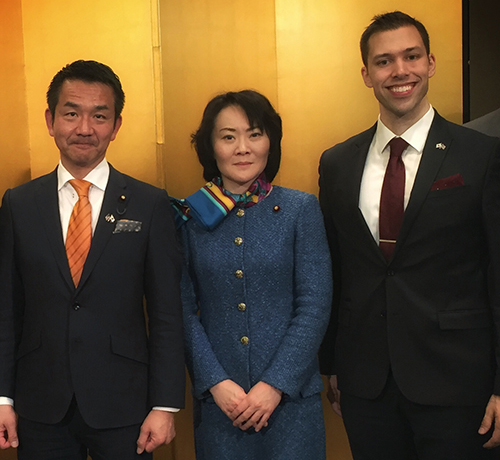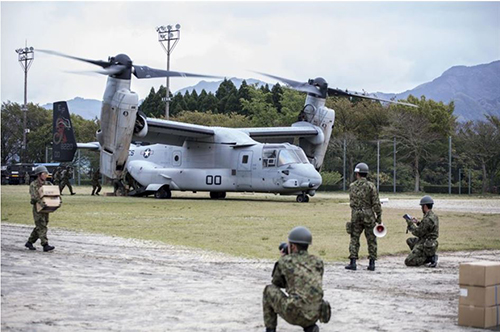Michael M Bosack
Reflection from Michael Bosack (ELP 2015)
2016 has been a whirlwind year for the U.S.-Japan alliance. As the Deputy Chief of Government Relations for U.S. Forces, Japan, I have had the fortunate predicament of being in the middle of much of it, and the insights I gained during the Emerging Leaders Program was essential in my decision-making while responding to those myriad issues.
It started with the North Korean nuclear test in January, continuing with additional DPRK missile launches, the Shinzato Incident in Okinawa, ongoing maritime activity in the East China Sea and the implementation of Japan’s 2015 Peace and Security Legislation. Each of these have had consequences — good and bad — that tested the strength of the alliance. Through each event and corresponding aftermath, the lessons learned from ELP contributors like James Higa, Emily Murase, Kaz Maniwa, Wally Tsuha, Colbert Matsumoto and others helped inform my responses. Though each individual has a separate legacy in their own right, I was able to take their knowledge and insight and channel it into my own interactions in supporting the U.S.-Japan relationship. I have no doubt that my fellow ELP alumni are doing the same in their respective career fields. Such was the strength of the content of the program.

I also saw the ELP network in action during perhaps the most important event for the U.S.-Japan alliance in 2016. During the first two weeks of April 2016, a series of major earthquakes struck Kyushu, and when the Japanese government declared a national emergency, something astonishing happened: at the same time that my Headquarters was responding in support of the disaster-stricken population, I received an email from fellow ELP alumni. The call was to ask for information on NGOs that were on the ground in Kyushu, so that the alumni included on the email thread could direct funding and support to organizations with an immediate impact. I was able to call directly down to our liaison officers who were on scene in Kumamoto to gather information and pass that right back to the ELPs for action. Like the response to 3.11 before, the United States’ support to Japan in the wake of disaster renewed faith in our commitment to this ever-important relationship. And within this broader response, the swift and energetic activity from the ELP network when Japan was in dire need displayed the important legacy that the program has established.

Although the U.S.-Japan relationship is as important as ever, a single generation cannot hope to sustain it. Programs like ELP serve to establish a vital legacy, and it was fulfilling to see its impact firsthand over the past year.